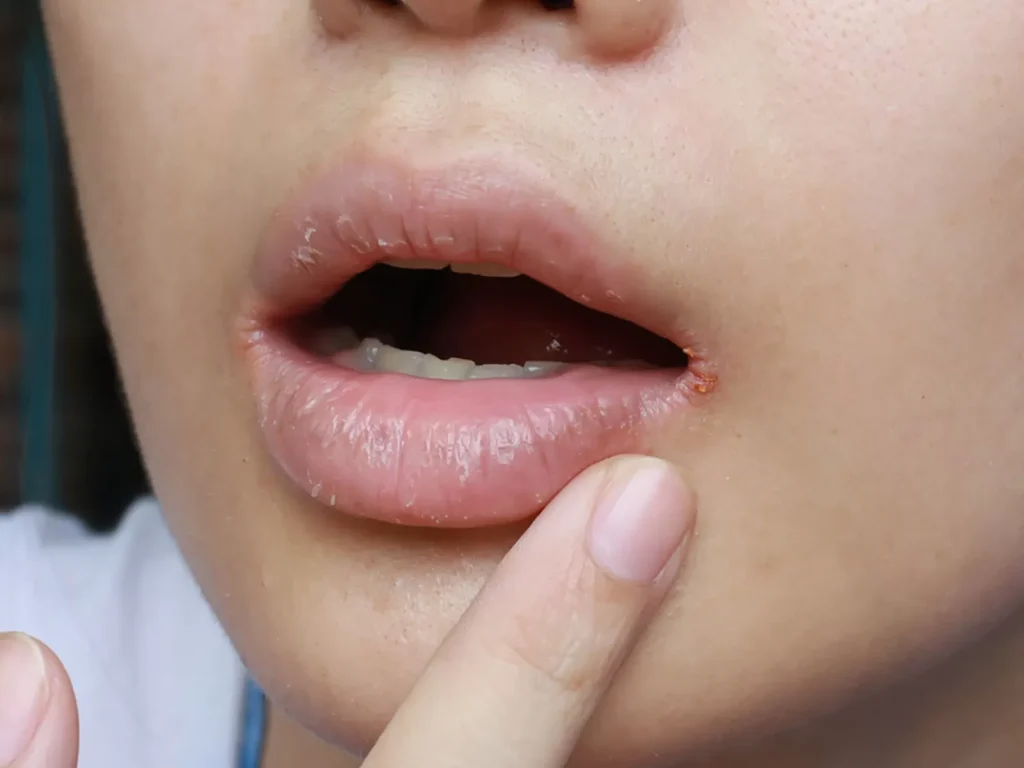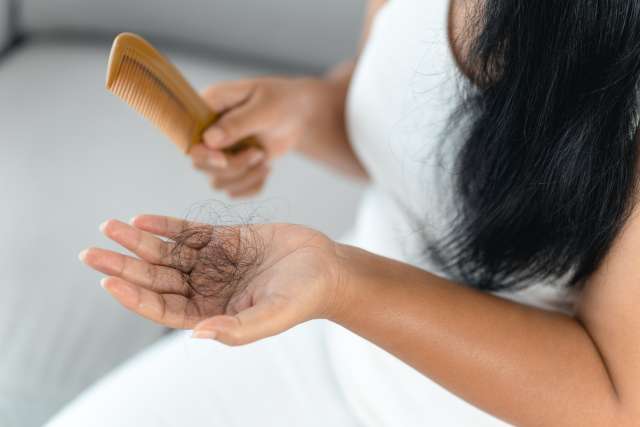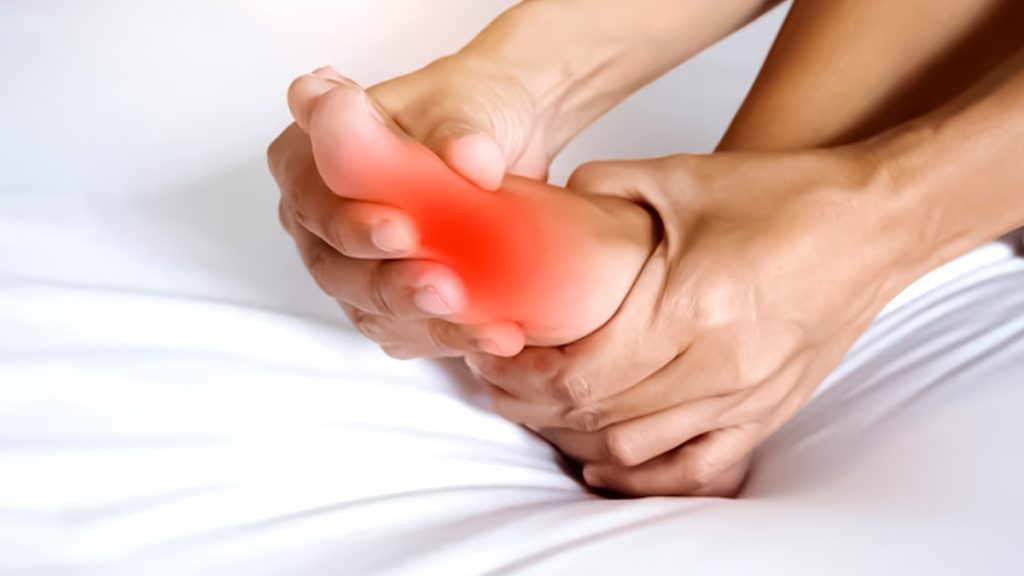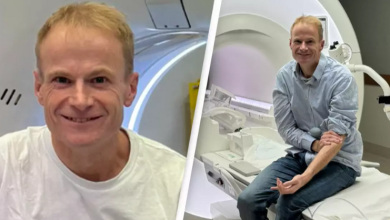Your body has a unique way of signaling when something isn’t right. Paying attention to certain symptoms can help you identify underlying health issues and take action before they become serious.
Cracks in the Corners of the Mouth

If you notice cracks in the corners of your mouth, this could be caused by factors like vitamin B deficiency, poor oral hygiene, infections, or an imbalance in the diet, particularly a lack of zinc and B vitamins. It can also be a sign of conditions such as anemia or weakened immunity.
Solution: To address these issues, consider incorporating more nutrient-rich foods into your diet. Include foods like quinoa, tofu, spinach, legumes, and dried apricots, which are good sources of essential vitamins and minerals, including zinc and B vitamins. Broccoli and kale can help improve iron absorption, supporting overall health. Additionally, certain cosmetic allergies may also contribute to this condition, so be mindful of your skincare products.
Red Rash on the Face, Flaky Skin, and Hair Loss
A scaly rash and redness on the face or scalp, especially if accompanied by hair loss, may indicate a deficiency in biotin (vitamin B7). Skin conditions like eczema, seborrheic dermatitis, or rosacea can worsen in colder weather, contributing to these symptoms.
Solution: Increase your intake of biotin by eating foods such as almonds, peanuts, goat milk, tomatoes, carrots, and avocado. These foods can help replenish biotin levels and promote skin health. If symptoms persist or worsen, it may be helpful to consult a dermatologist to rule out underlying skin conditions.
Common Factors Leading to Hair Loss

Hair loss can be triggered by various factors, including illness, surgery, thyroid disease, medications, and hormonal changes, particularly postpartum hair loss in women. It’s essential to consider multiple causes when experiencing hair thinning or shedding.
Solution: Addressing the underlying cause of hair loss through medical consultation is important. In some cases, proper nutrition, including iron and zinc, can support hair growth, but consulting with a healthcare provider is crucial for a tailored approach.
Red or White Growths That Resemble Acne
Red, painful bumps resembling acne on your skin could be a sign of hormonal imbalance, a lack of essential fatty acids, and vitamin A or D deficiency. Such conditions may appear on the face, arms, or hips and could also be linked to skincare or diet-related factors.
Solution: Boost your intake of healthy fats, such as those found in flaxseeds and other nuts, as well as vitamin A-rich foods like carrots and leafy greens. Dairy products can help maintain skin health and support overall nutrient balance. If the rash continues, it’s best to seek professional advice to determine the cause.
Numbness or Burning Sensation in Hands, Feet, or Other Body Parts

Numbness, tingling, or a burning sensation in the limbs may indicate a deficiency in B vitamins, particularly B6, B9 (folic acid), and B12. These vitamins are essential for maintaining nerve function and overall peripheral nervous system health.
Solution: To address this, consume more vitamin B-rich foods, such as spinach, asparagus, beans, and dairy products. A well-balanced diet that supports nerve health is important. If symptoms persist, it may be necessary to check for any underlying conditions such as diabetes or neurological disorders.
Conclusion
While some of these symptoms can be linked to vitamin and mineral deficiencies, it’s important to understand that dietary changes alone may not be enough to address all health concerns. A balanced diet, rich in vitamins and minerals, is crucial for overall wellness, but it’s equally important to consult with healthcare professionals when symptoms persist or worsen. Taking proactive steps to support your health through proper nutrition and self-care can help maintain a healthy body and prevent future issues. Always listen to what your body is telling you and seek professional guidance when needed.







